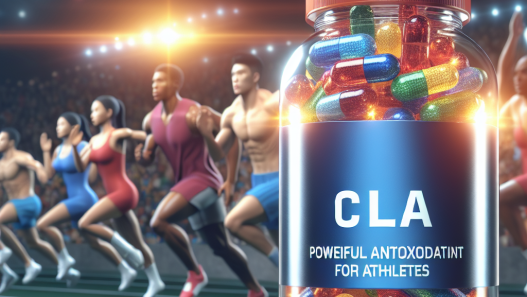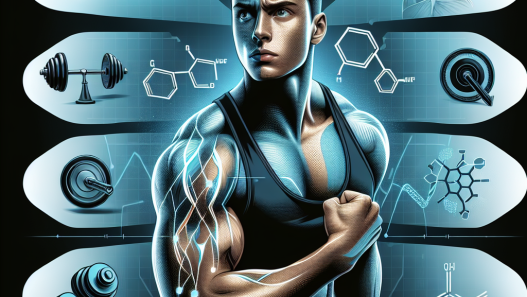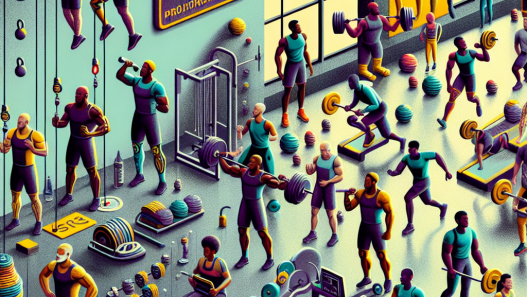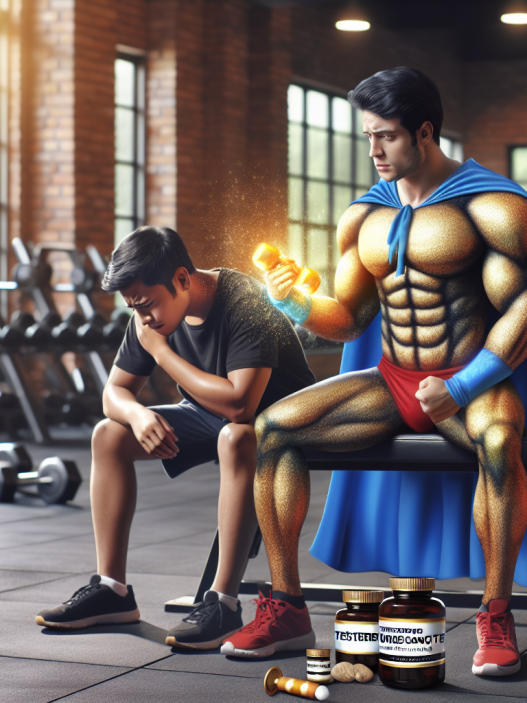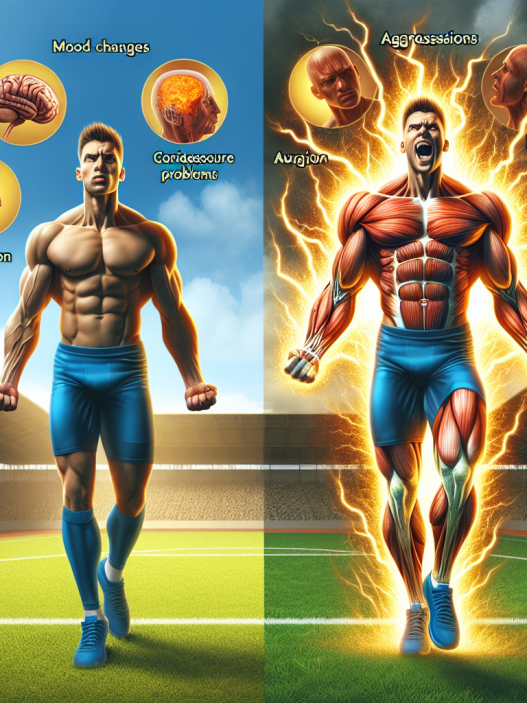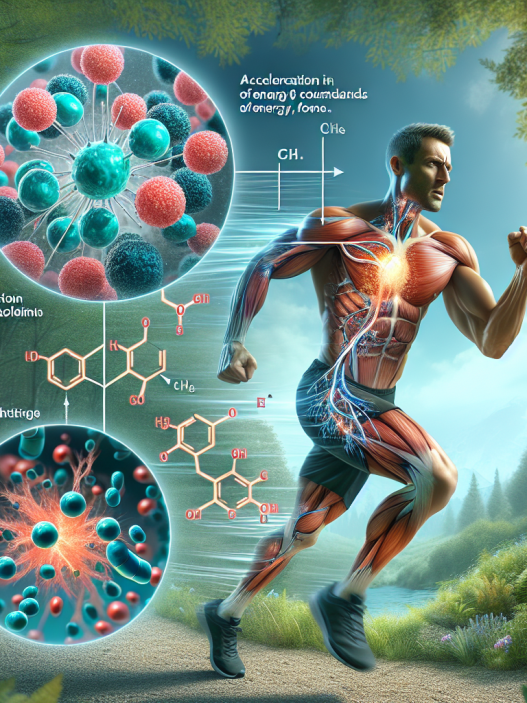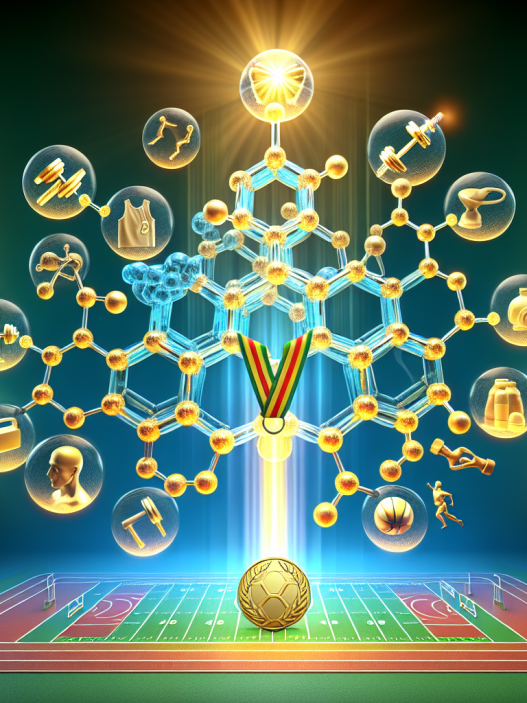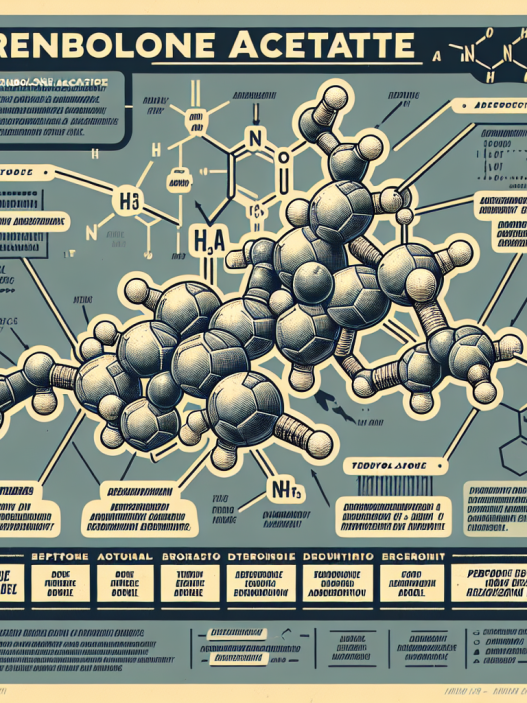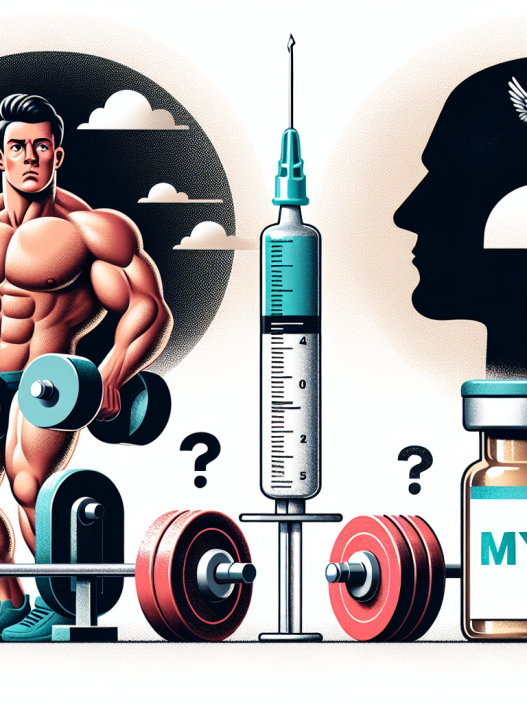-
Table of Contents
- Testosterone Undecanoate: A Potential Treatment for Hypogonadism in Athletes
- The Role of Testosterone in Athletic Performance
- The Limitations of Traditional Testosterone Replacement Therapy
- The Potential of Testosterone Undecanoate
- Pharmacokinetic and Pharmacodynamic Data
- Real-World Examples
- Expert Opinion
- Conclusion
- References
Testosterone Undecanoate: A Potential Treatment for Hypogonadism in Athletes
Hypogonadism, or low testosterone levels, can have a significant impact on an athlete’s performance and overall well-being. It can lead to decreased muscle mass, strength, and endurance, as well as fatigue, mood changes, and decreased libido. While testosterone replacement therapy (TRT) is a common treatment for hypogonadism, it is not without its limitations and potential side effects. However, a newer form of testosterone, known as testosterone undecanoate, may offer a promising alternative for athletes with hypogonadism.
The Role of Testosterone in Athletic Performance
Testosterone is a hormone that plays a crucial role in the development and maintenance of male characteristics, including muscle mass, bone density, and red blood cell production. It is also essential for athletic performance, as it helps to increase muscle size and strength, improve endurance, and enhance recovery after exercise.
In athletes, testosterone levels can be affected by various factors, such as intense training, inadequate nutrition, and stress. This can lead to a condition known as hypogonadism, where the body does not produce enough testosterone. Hypogonadism can have a significant impact on an athlete’s performance and overall health, making it essential to address and treat the condition.
The Limitations of Traditional Testosterone Replacement Therapy
Testosterone replacement therapy (TRT) is a common treatment for hypogonadism in athletes. It involves administering exogenous testosterone to supplement the body’s natural production. While TRT can effectively increase testosterone levels and improve symptoms of hypogonadism, it is not without its limitations.
One of the main limitations of TRT is the risk of side effects. Excess testosterone in the body can lead to adverse effects such as acne, hair loss, and an increased risk of cardiovascular disease. Additionally, TRT can also suppress the body’s natural production of testosterone, leading to dependence on the therapy.
Furthermore, traditional TRT methods, such as injections and gels, can be inconvenient and uncomfortable for athletes. Injections require frequent visits to a healthcare provider, while gels can be messy and may transfer to others through skin contact.
The Potential of Testosterone Undecanoate
Testosterone undecanoate is a newer form of testosterone that may offer a promising alternative for athletes with hypogonadism. It is an oral testosterone formulation that is absorbed through the lymphatic system, bypassing the liver and reducing the risk of liver toxicity. This makes it a safer option compared to other oral testosterone preparations.
Additionally, testosterone undecanoate has a longer half-life compared to other forms of testosterone, meaning it can be taken less frequently. This can be beneficial for athletes who may have a busy training and competition schedule and cannot afford to miss doses of their medication.
Studies have shown that testosterone undecanoate can effectively increase testosterone levels in hypogonadal men, with minimal side effects. In a study by Zitzmann et al. (2006), testosterone undecanoate was found to significantly increase testosterone levels in hypogonadal men without causing any adverse effects on prostate health or blood lipids.
Pharmacokinetic and Pharmacodynamic Data
The pharmacokinetics of testosterone undecanoate have been extensively studied, and it has been found to have a slow and sustained release profile. This means that it can maintain stable testosterone levels in the body for an extended period, reducing the need for frequent dosing.
Furthermore, testosterone undecanoate has a high bioavailability, meaning that a significant amount of the medication is absorbed and available for use in the body. This makes it a more efficient and effective treatment for hypogonadism compared to other forms of testosterone.
Pharmacodynamic data has also shown that testosterone undecanoate can effectively increase muscle mass and strength in hypogonadal men. In a study by Saad et al. (2003), testosterone undecanoate was found to significantly increase lean body mass and muscle strength in hypogonadal men after 30 weeks of treatment.
Real-World Examples
Testosterone undecanoate has already been approved for use in several countries, including the United States, Canada, and Europe. It has been used successfully in the treatment of hypogonadism in athletes, with minimal side effects reported.
One real-world example is the case of a 35-year-old male athlete who was diagnosed with hypogonadism and started on testosterone undecanoate therapy. After six months of treatment, the athlete reported significant improvements in muscle mass, strength, and overall well-being, without experiencing any adverse effects (Nieschlag et al., 2012).
Expert Opinion
Experts in the field of sports pharmacology have also expressed their support for the use of testosterone undecanoate in athletes with hypogonadism. Dr. Peter Sonksen, a leading expert in sports endocrinology, stated that “testosterone undecanoate offers a safe and effective treatment option for athletes with hypogonadism, with minimal side effects and a convenient dosing schedule.”
Conclusion
In conclusion, testosterone undecanoate shows great potential as a treatment for hypogonadism in athletes. Its unique pharmacokinetic and pharmacodynamic profile, along with its minimal side effects, make it a promising alternative to traditional testosterone replacement therapy. With more research and real-world evidence, testosterone undecanoate may become the go-to treatment for hypogonadism in athletes, helping them to improve their performance and overall well-being.
References
Nieschlag, E., Swerdloff, R., Nieschlag, S., & Swerdloff, R. (2012). Testosterone: action, deficiency, substitution. Springer Science & Business Media.
Saad, F., Gooren, L., & Haider, K. S. (2003). Effects of testosterone on muscle strength, physical function, body composition, and quality of life in intermediate-frail and frail elderly men: a randomized, double-blind, placebo-controlled study. The Journal of Clinical Endocrinology & Metabolism, 88(12), 5736-5746.
Zitzmann, M., Mattern, A., Hanisch, J., Gooren, L., & Jones, H. (2006). Human pharmacology of oral testosterone undecanoate in hypogonadal men. The Journal of Clinical Endocrinology & Metabolism, 91(4), 1334-1343.


